Research shows most New Zealanders are concerned about rising energy prices, which are scheduled to continue. Meanwhile, the majority think it’s important to adopt ways to be more energy efficient, with perceived benefits including saving money on running costs, being more warm and comfortable at home, and reduced household emissions.
Overview
This research captures how New Zealanders are using energy in their homes, as a snapshot, and over time. We surveyed 760 New Zealand adults about their energy use contexts, behaviours and attitudes between 16-26 September, 2024. The sample was nationally representative based on age, gender and region. About 8/10 of respondents were their household’s energy decision makers.
Findings
More than 8 in 10 New Zealanders are concerned about household energy prices, with some taking steps to address these by investigating other retailers and factoring in energy efficiency when purchasing new appliances.
However, they want to learn more about how they can improve their energy efficiency – and lower their power bills.
Awareness of which sources of energy are cleanest and cheapest, and which actions will have the greatest impact on their overall efficiency, is lacking.
Household energy prices are expected to continue to rise.
Residential electricity prices have been increasing since 2019. Prices rose 6.4% in the year to March 2024, following a 4.4% increase in the year to March 2023.
Gas has also become more expensive for households. The nominal average cost of natural gas for houses increased from 14.41c/kWh in the calendar year 2022 to 15.98c/kWh in 2023, and rose again to 16.70 c/kWh for the calendar year 2024.
Data reported from Consumer NZ’s August 2024 energy survey estimated about 140,000 households had to take out a loan to cover their power bill in the past year.
81% of New Zealanders expect electricity prices to continue to rise, with a similar number (83%) expressing concern about this.
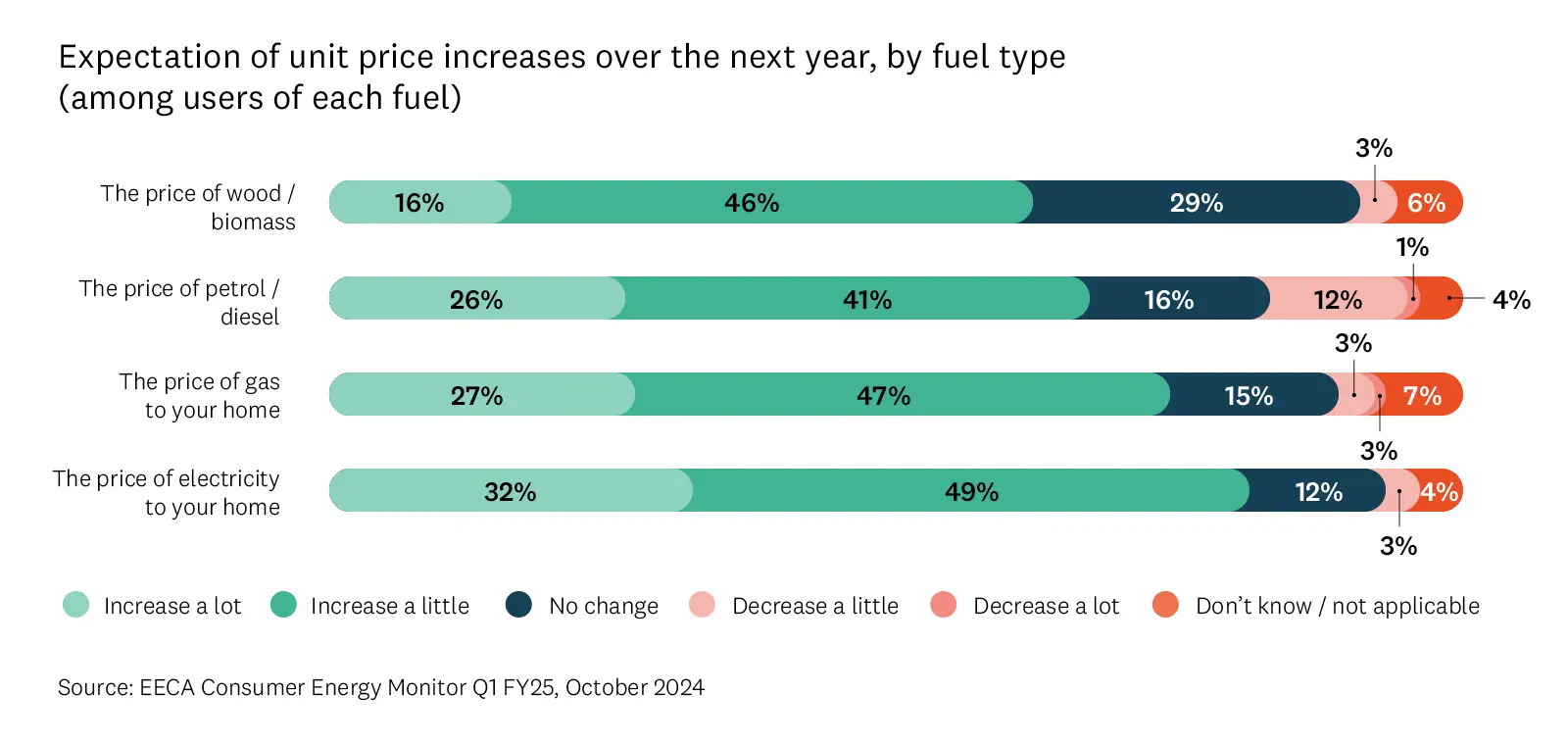
Price and security of supply are top concerns. So is investment in renewable generation.
Ensuring prices do not increase significantly was the most important factor for New Zealanders (87%) when considering the future of energy. Security of supply was also important (84%) to respondents.
Respondents reported that investment in renewable electricity generation was more important than developing technology to get the most out of existing fossil fuels, and having sufficient supply of fossil fuels.
The majority of New Zealanders say they pay a ‘fair amount’ of attention to their energy use at home. But only about half feel confident in understanding and managing their use.
Younger New Zealanders (18-34) are significantly less likely to give ‘a lot’ of thought towards their energy use compared to New Zealanders aged 35+ (7% vs 20%).
Homeowners are significantly more likely to indicate they are ‘confident’ or ‘very confident’ in their ability to manage their energy use.
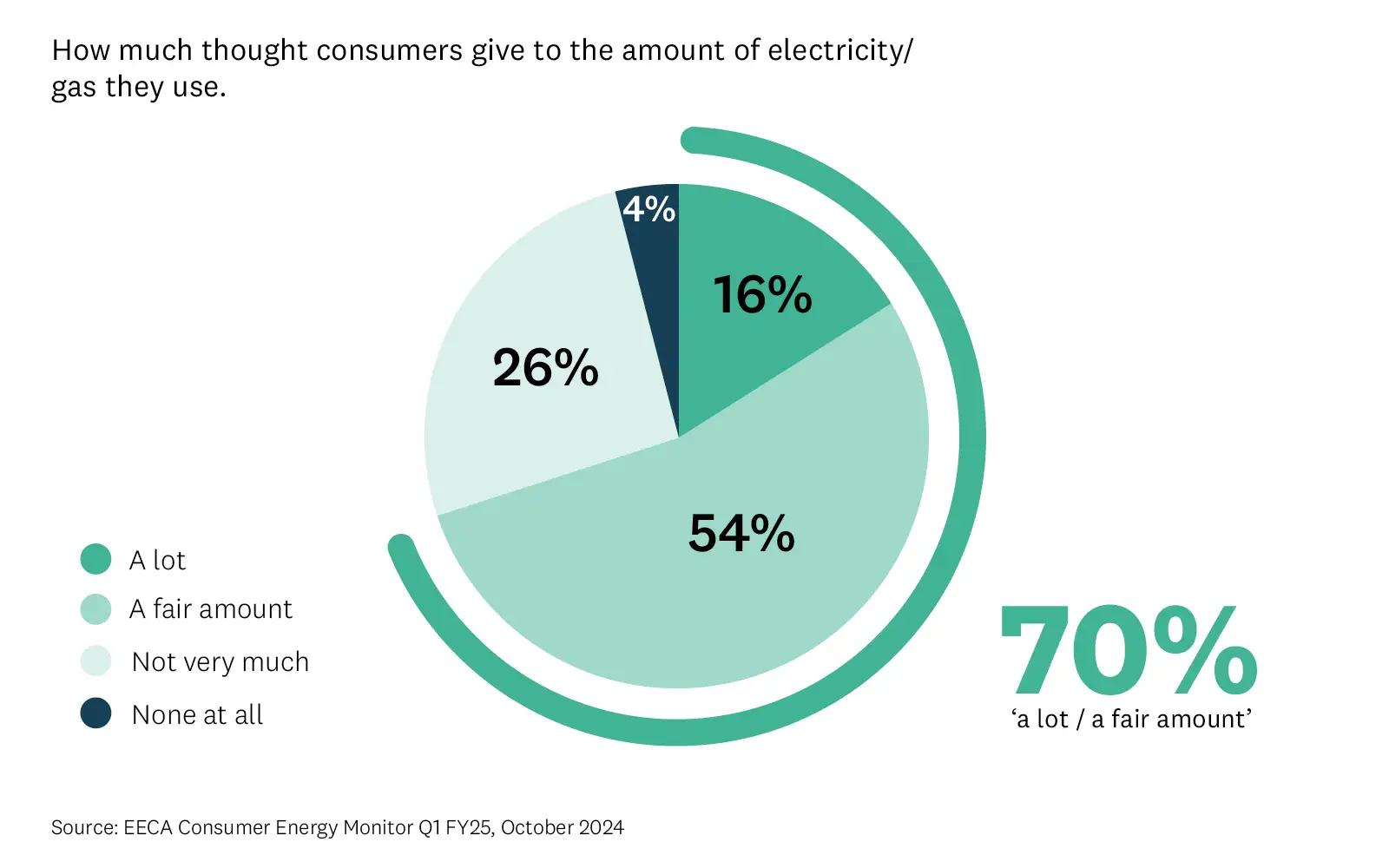
Meanwhile, over half of New Zealanders want to learn more about energy efficiency, with 35 to 54-year-olds significantly more likely (65%) to want to know more about this than younger and older cohorts.
Nearly 8 in 10 think it’s important we adopt ways to be more energy efficient, with perceived benefits including saving money on running costs, being more warm and comfortable at home, and reduced household emissions.
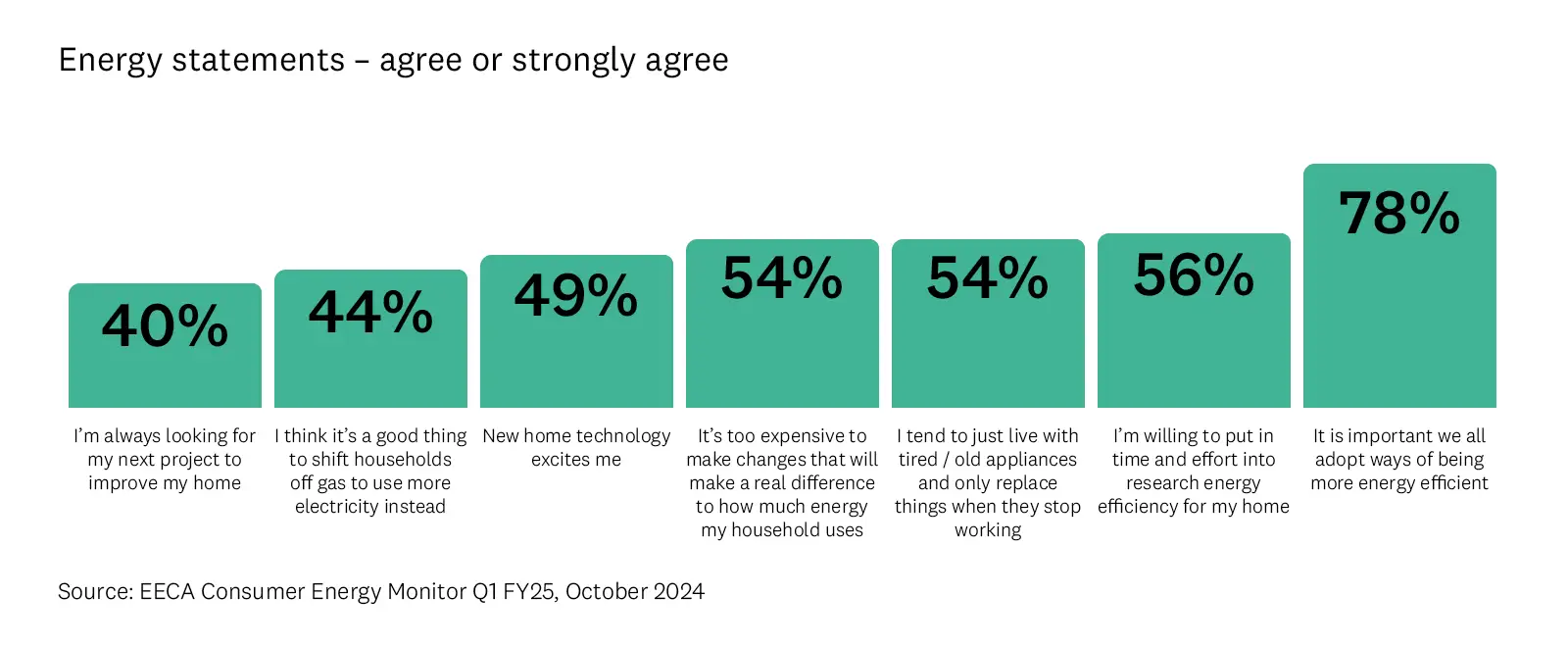
New Zealanders are investigating other measures to gain greater control over their power bills, but they’re rarely following through.
In the last 12 months:
- 44% have shopped around for a new gas supplier by comparing prices/services; 14% engaged a new gas provider.
- 43% have shopped around for a new electricity supplier by comparing prices/services; 16% have engaged a new electricity supplier.
Off-peak pricing was used by less than a third of respondents (29%), despite 39% being aware of it.
There’s awareness of everyday measures to save energy, but we’re not always acting on those. Only half of the key energy efficiency actions were taken regularly by a majority of respondents.
However, 46% of respondents were happy to pay a higher price for a more energy efficient appliance.
More than 6 in 10 homeowners who did not already have solar installed were considering adopting rooftop solar systems in the future.
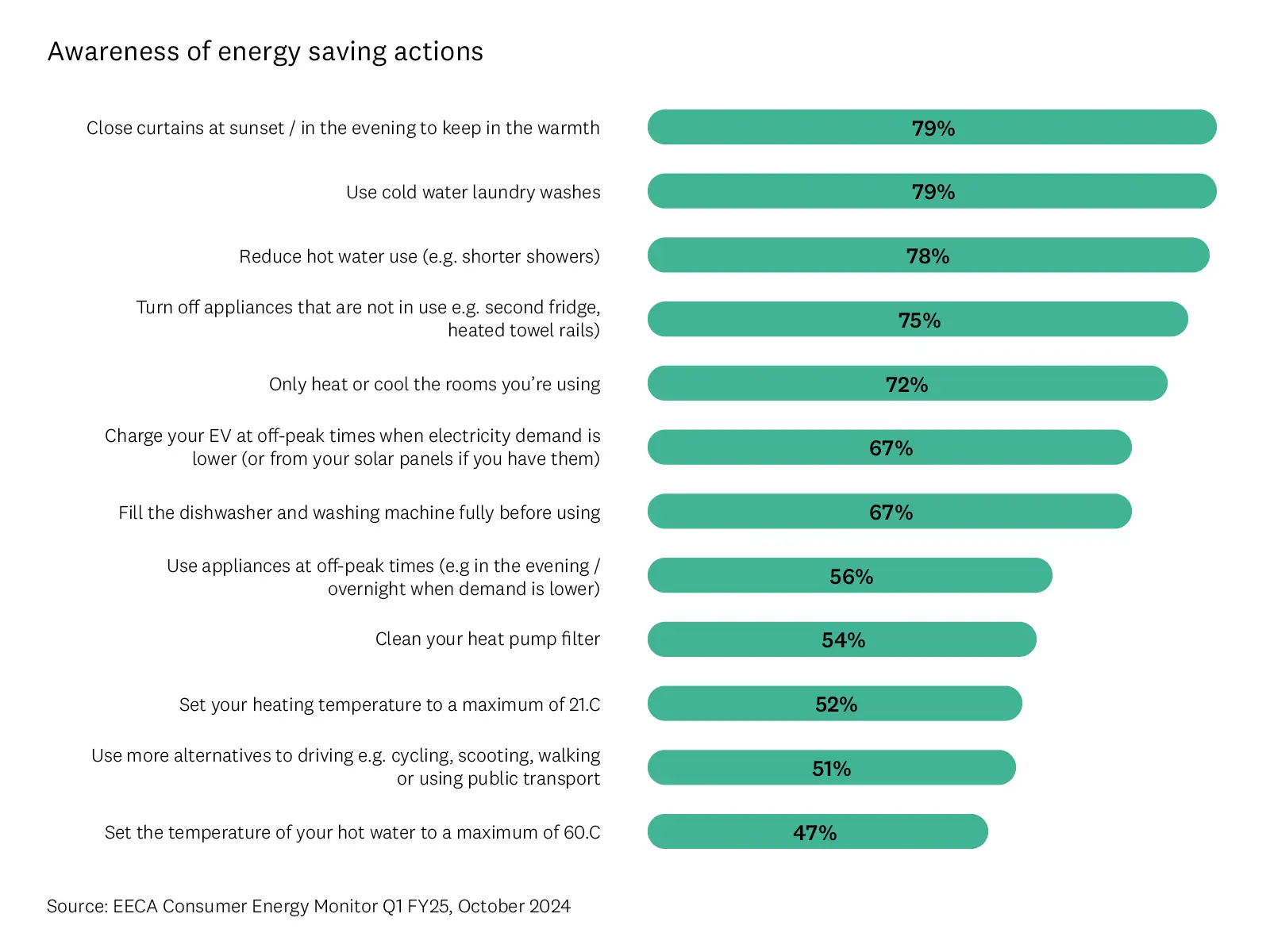
Only a slim majority of New Zealanders realise electricity is our lowest-carbon energy source.
There isn't consensus among New Zealanders over the relative benefits of electricity versus other energy sources. Just over half (55%) of New Zealanders believe that electricity produces the lowest level of carbon emissions. 18-34-year-olds were significantly less likely to think electricity produces the lowest carbon emissions (43%). This group also predicted a significantly lower average for the percentage of New Zealand’s electricity that comes from renewable sources.
Older New Zealanders (55+) were significantly more likely to see electricity as environmentally friendly (47%), than those aged under 55 (32%).
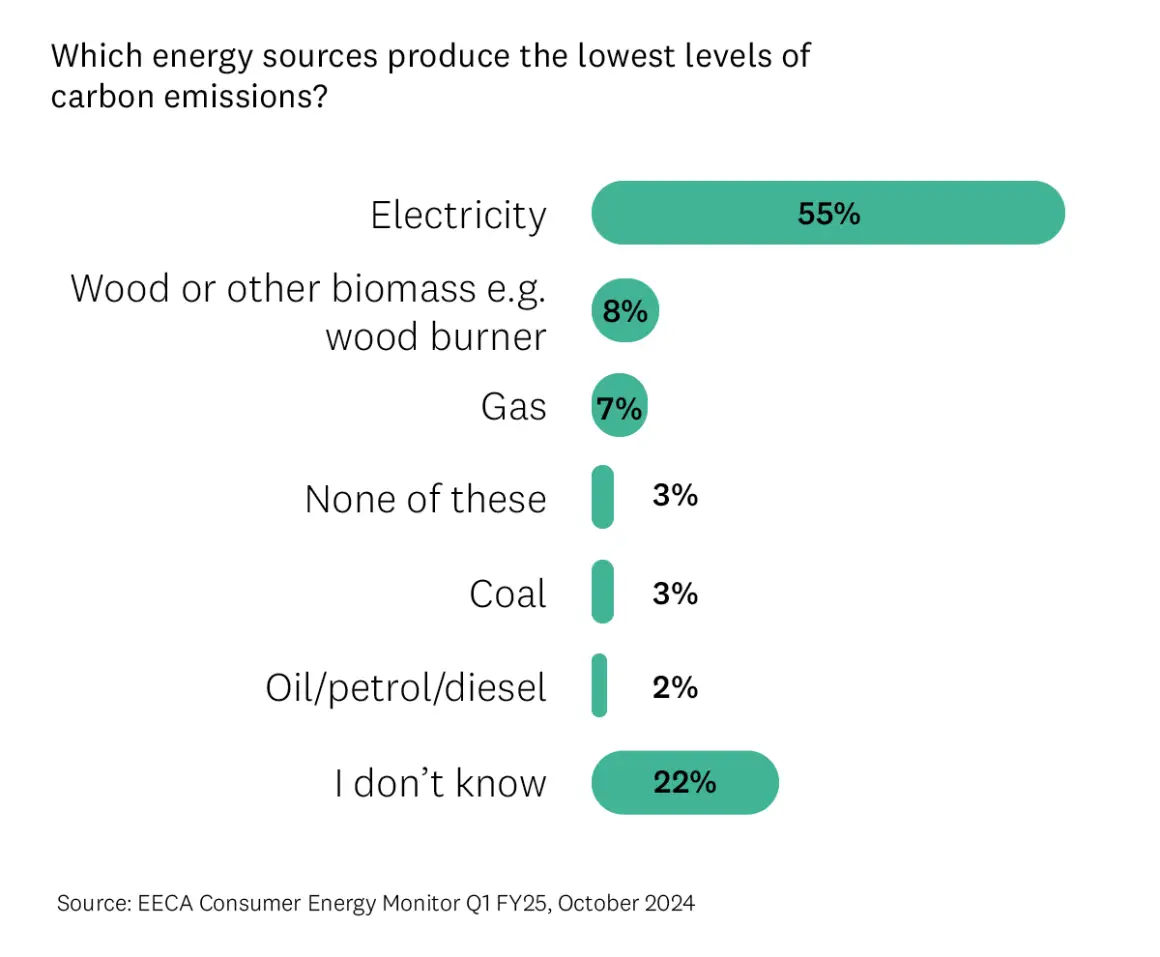
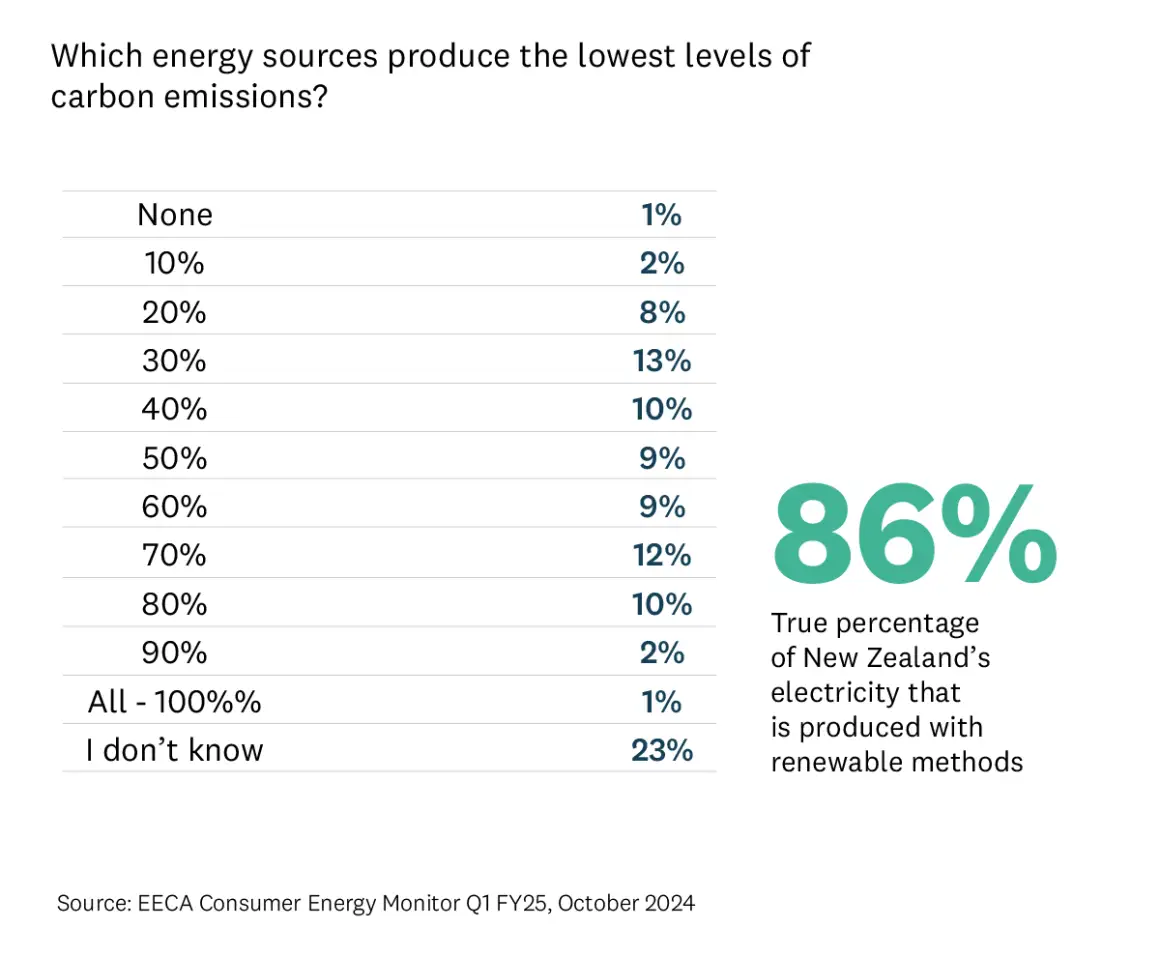
Read the full report
EECA will publish new reports each quarter to track changes in household energy users’ attitudes and actions.
Download previous reports
Read next
-
Electrifying Aotearoa: The consumer perspective
New consumer research explores the status of household electrification among owner-occupiers in New Zealand.
- Electricity
- Products & appliances
- Market research
-
Residential smart EV chargers and demand flexibility
How smart charging technology can help manage electricity demand from EVs.
- Electric vehicles
- Smart charging
- EV charging
-
How we move: Transport use and attitudes
See the results from our consumer survey — March to June 2024.
- Electric vehicles
- Market research


